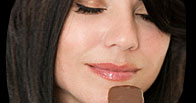Severe Forms of Acne
Most acne sufferers deal with acne vulgaris, the most common kind of acne, but some people find themselves struggling against more disfiguring and persistent varieties of acne. Although scientists often do not understand the precise triggers and conditions which cause these more severe forms of acne, they often know how to combat them. Any victim of these skin maladies should see a dermatologist immediately, as many of them can cause disfiguring scarring.
Acne Conglobata
Acne conglobata isn't actually a distinct form of acne, but a condition of acne vulgaris expanded completely beyond control. Horribly disfiguring, acne conglobata usually occurs between the ages of 18 and 30 and most often afflicts males. Characterized by lesions and blackheads across the face, upper back, and upper chest, acne conglobata can be treated by aggressive use of prescription acne drugs such as Isotretinoin, although treatments can take time to be effective and acne conglobata has shown resistance to some medications.
Acne Fulminans
Acne fulminans erupts across the face, back, and chest. A variety of acne conglobata, acne cysts and nodes characterize this form. Unlike any other form of acne, acne fulminans is often accompanied by aching joints and fever. Unfortunately, antibiotics often prove mostly ineffective on acne fulminans. Instead, dermatologists often prescribe steroid treatments and aggressive acne medications. This form of acne can also lead to severe scarring.
Gram-Negative Folliculitis
This form of acne may result as a side effect of a long term acne prescription regimen. Gram-negative folliculitis displays symptoms of cysts and pustules. Fortunately, even among serious acne sufferers, this form of acne is very rare. For those who suffer this variety of acne, it often responds well to standard prescription medications.
Pyoderma Faciale
Unlike other forms of acne, pyoderma faciale afflicts only adult women, mostly between the ages of 20 and 40. Pyoderma faciale has been known to strike women who otherwise have never had a serious acne problem, so the abrupt appearance of large painful nodules, pustules, and sores often comes as a surprise. Fortunately, pyoderma faciale rarely lasts longer than a year, although the affliction has the potential to cause severe scars.
How to Prevent Severe Acne
Preventing conditions like acne conglobata gains a new dimension of urgency due to the almost unavoidable scarring left in the wake of severe forms of acne. However, learning to prevent acne may require more than simply the newest prescription. While acne treatments often show near miraculous results, acne is not a disease and as such will never be cured. Rather, acne conglobata and other similar forms result from the condition of the skin caused by genetics, hormones, and lifestyle. Consequently, finding an effective preventative method may include dietary changes, investigation into allergies, altered daily rituals, and probably a new set of cleansing and moisturizing products. RevitaClear offers a complete system to cleanse, moisturize, and heal skin, as well as prevent future outbreaks. The secret to how to prevent acne lies in determining the cause and triggers for each individual, but RevitaClear has been shown to help prevent new outbreaks. Experts call it the best cleansing system on the market. Read our RevitaClear review.




